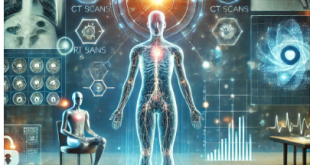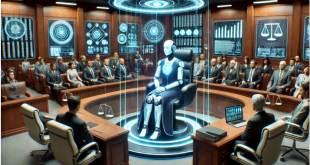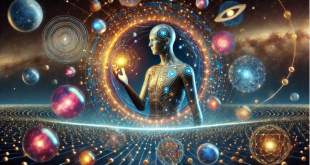A New Era of Transformation
Man’s evolution has been guided by tools and technology from the use of fire to the industrial revolution. Now, in the 21st century, it is artificial intelligence that is going to play the most transformative role for our next evolutionary stage. While the earlier tools extended our muscles, AI extends our minds to redefine how we think, live, and adapt to a world of continuous change.
AI: The Next Evolutionary Catalyst
While natural evolution takes thousands of years to adapt to new environments, AI allows humanity to evolve at an unprecedented pace. It is not just changing what we do—it is altering who we are. Here are some key ways AI is shaping human evolution:
1. Augmented Intelligence: A New Cognitive Frontier
AI systems like ChatGPT, AlphaFold, and DeepMind are expanding human intellectual capabilities. Tasks that required years of research, such as protein structure prediction, can now be accomplished in weeks. This enables humans to solve complex problems much faster, accelerating the progress of fields like medicine, engineering, and climate science.
2. AI and the Redefinition of Creativity
AI-generated art, music, and writing challenge traditional notions of creativity. Tools like DALL-E and MidJourney collaborate with humans, generating new forms of expression. This partnership between human ingenuity and AI’s computational prowess is creating a hybrid creative process that redefines art itself.
3. Accelerating Knowledge Transfer
AI-based platforms enable fast learning and knowledge sharing. Personalized learning systems, like adaptive e-learning platforms, adapt education to the needs of the individual. This not only democratizes knowledge but also equips future generations with the skills needed in a rapidly changing world.
4. Human-Machine Symbiosis
Through BCIs developed by Neuralink, for example, the blurring of biology and technology at their intersection through the integration of AI with the human body could mean an entirely different life in treating neurological conditions, even elevating human cognition itself in new ways.
5. Ethical Challenges and Societal Evolution
The influence of AI also throws up deep ethical dilemmas. Algorithmic bias, issues of privacy, and job displacement threaten the very fabric of society and oblige it to rethink its values and norms. With human beings learning to live with more autonomous systems, human social structures and ethical paradigms change.
The AI-Driven Evolution of Humanity
AI is influencing human evolution not just to add capabilities but actually gets us to reevaluate what it means to be human. Have we become a species evolved by design and not by selection?
This may even help us design smarter, healthier, and more resilient generations for the future. Through CRISPR and AI-driven genomics, what used to happen by chance can now be a choice for human evolution.
The Risks of AI in Evolution
Just as every revolution is a double-edged sword, so is AI. Over-reliance on AI does have the risk of reducing critical thinking capabilities and problem-solving. The lightspeed revolution in AI may also precipitate widening societal splits, where only those with access to AI get the benefits. As AI assumes ever-growing decision-making roles, aligning it to human values becomes an enormous challenge.
A Call for Responsible AI Development
As we stand at the precipice of an AI-driven evolutionary leap, humanity must proceed with caution and wisdom. The choices we make today about AI governance, ethics, and inclusivity will shape our collective future. Collaboration between technologists, policymakers, and ethicists is essential to ensure AI serves as a tool for empowerment rather than division.
Conclusion
AI is not a tool; it is a catalyst for human evolution, changing the way we live, learn, and interact. It offers incredible potential to solve global challenges, expand human potential, and redefine our species. However, this evolution must be done with careful stewardship to ensure that it serves all of humanity.
In this era of AI-driven transformation, the question is no longer if we will evolve but how we will guide this evolution. The choices we make today will determine whether AI becomes humanity’s greatest ally or its most formidable challenge. Let us choose wisely.


